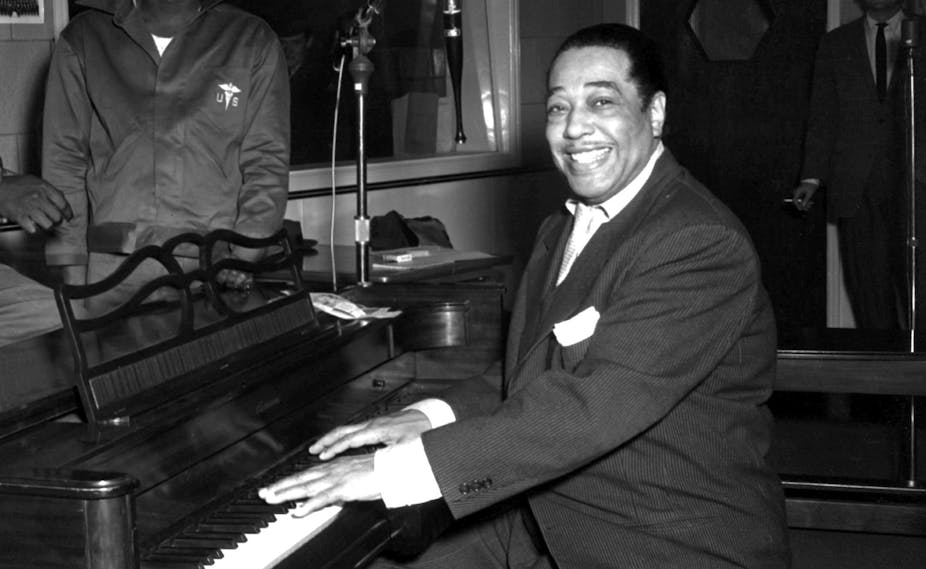A second referendum on Britain exiting the European Union should be held, some people contend, once voters have a better idea of what a departure would actually involve. Meanwhile, politicians in Edinburgh are seeking a second referendum on Scottish independence sometime in the next few years, though many voters in the first were led to understand that their decision would hold for “a generation”.
So, if voters expect the result of a first referendum to stand, can a follow-up one be justified?
In thinking about this question, I was reminded of a story about Duke Ellington. The Duke, so the story goes, was so addicted to music that after a gig finished he would stay at the piano and keep playing all night. This was inconvenient when he had to play the next day so he gave a member of his band the job of forcing him off the piano. The man with this job, however, had a serious problem. After the gig, Ellington would try to override his previous instructions. But before the gig he instructed the man to take no notice of such attempts. Now which Duke, exactly, was the man answerable to?
Economists call this the problem of time inconsistency. But a philosopher could argue that it’s a question of metaphysics.
If Ellington is one undivided entity that endures through time, then his instructions are just contradictory. Post-gig Ellington and pre-gig Ellington are one and the same man – one who has instructed his bandmate both to stop him from playing the piano and not to do so. His bandmate can’t be obliged by contradictory instructions, so he isn’t obliged to do anything at all.
But suppose we hold that Ellington is a “perduring” entity, composed of a string of “time-slices”, running from earlier to later. Then we must ask which time-slice(s) of Ellington the bandmate answers to.

On the face of it, there is a good reason for having the bandmate obey the instructions of the more recent time-slice of Ellington. After all, more recent time-slices have knowledge that wasn’t accessible earlier.
Imagine Ellington learning, just after the gig, that he would be expected to play something new at his next gig and would need to put in some extra practice immediately. Doesn’t his present self, who has acquired this crucial new information, have the right to override the instructions his past self gave his bandmate?
Does that mean that present-Ellington should have ultimate sovereignty? No. This is where the problem of “pessimistic induction” comes in. Past-Ellington turned out to be making a poor decision when new facts came to light. But present-Ellington will soon become past. He lacks information that will come to light in the future. This is a reason to deny all time-slices the right to make a final decision. The young St Augustine faced a theological version of this puzzle: if you can always repent and come to Jesus tomorrow, there is never a reason to stop sinning now.
The paradoxes of second referendums
There is therefore a philosophical puzzle around the question of second referendums. The phrase “the will of the people” is thrown about, but who are “the people”? Even if we rather crudely identify the people with the majority, do we mean the majority in 2016, when the referendum was held, or the majority in a later year
Suppose we divide “the people” up into time-slices, as in the Duke Ellington example. If, in 2017, we implement the decision of the people in 2016 without consulting the people in 2017, this would seem undemocratic. The whole franchise has been given over to the earlier time-slices.
On the other hand, if we let the later time-slices make the decisive choice, then we’re disenfranchising the earlier versions. They aren’t able to participate in a 2017 referendum for a very good reason: they only exist in the past. And so their past decision turns out not to have been a decision at all. Worse, by induction the same can be readily applied to the 2017 time-slices.
It’s no wonder that Brexiteers hate the idea of a second referendum. It goes against the will of the people, who made their decision and were told it would be final. But the Brexiteers ignore the fact that disallowing a second referendum prohibits today’s “the people” from expressing their preferences, based on the options for Brexit that are emerging.
Scottish nationalists, by the same token, are setting a dangerous precedent in raising the spectre of a second referendum. If they get the result they want, how will they make it stick?
I have no conclusion to draw from all this, except to stress that the question is cursed with paradoxes. How logical simple majority-rule could be, if it weren’t for the passage of time.
Diogenes the Cynic is said to have responded to Zeno’s famous paradoxes of motion by getting up and walking. Perhaps his point was that we shouldn’t let paradoxes get in the way of our projects. All the same, it’s a dereliction of duty for any thinking person to pretend, in the teeth of a paradox, that things are as clear as day. And there seems to have been a lot of pretending on both sides of these referendum debates.

